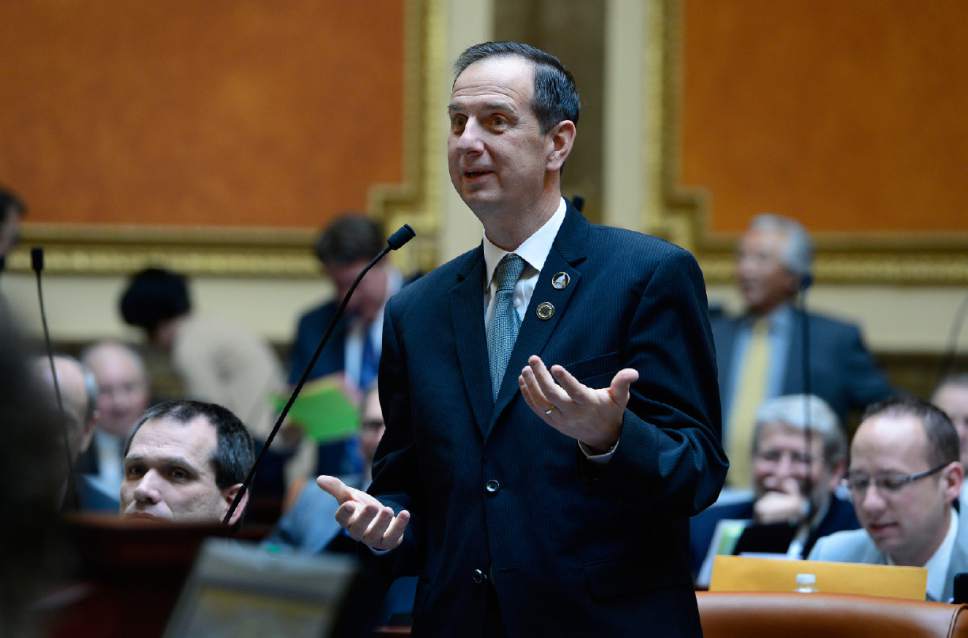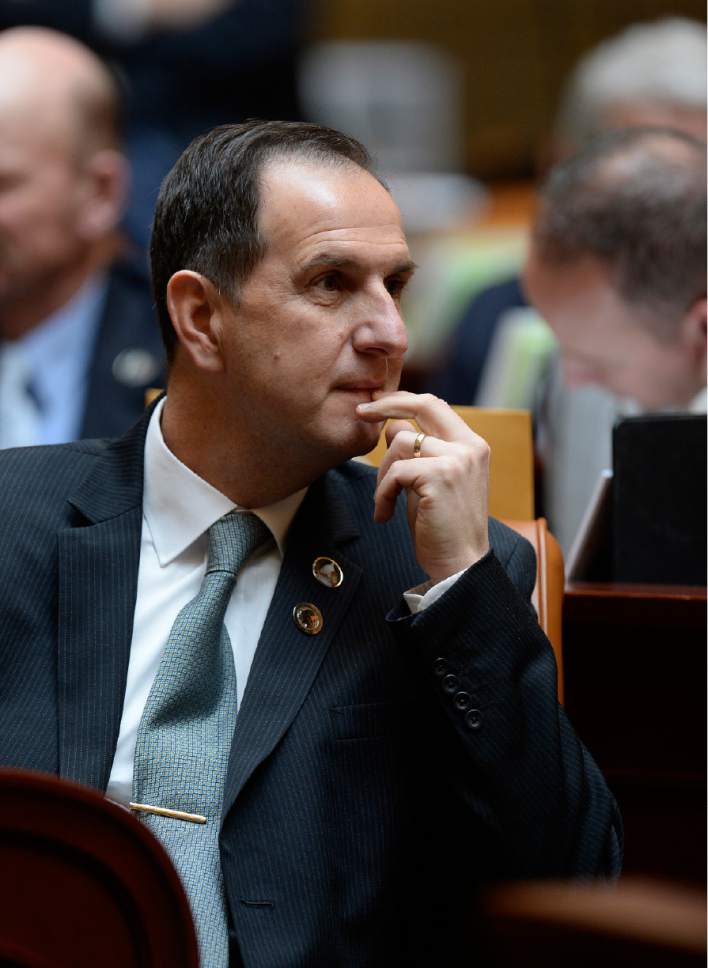This is an archived article that was published on sltrib.com in 2016, and information in the article may be outdated. It is provided only for personal research purposes and may not be reprinted.
As Utahns prepare to "fall back" an hour Sunday to end daylight saving time, one state lawmaker wants to give voters the chance to help end the semiannual clock adjusting.
Rep. Norm Thurston, R-Provo, says he is preparing legislation that would put on the ballot whether to continue or dump daylight saving time. For now, however, he is proposing that it be a nonbinding ballot question that would be advisory only.
"This is a perennial issue at the Legislature and constituents want definitive action taken," he said. "Now it is time to let Utahns voice their opinion in an official capacity so we can end this discussion once and for all."
The state conducted a big survey on the topic in 2014, ordered through legislation. The Governor's Office of Economic Development held several hearings, huddled with key industries and conducted a nonscientific online survey that attracted 27,000 responses.
Participants' lengthy and passionate comments in the survey amounted to 574,000 words — nearly the number in the famously long novel, "War and Peace."
In the final tally, 67 percent of respondents favored keeping Mountain Standard Time all year. Another 18 percent wanted a new system to keep daylight saving time all year. In last place, 15 percent preferred the current system that requires adjusting the time twice a year.
Several bills have surfaced since then to change the current system, but all failed. Thurston said he wants to take advantage of a new law that allows statewide public opinion questions on the ballot.
He said that could help lead to a final decision and is needed because the Legislature has "not mustered the political will to do anything."
The topic actually is "the most frequently raised concern for my constituents," Thurston said in a news release, pointing out that it has "real impacts on physical and emotional health and productivity."
He adds, "The people who are affected by the changing clocks really have a hard time and they have made their voices heard. I hear most often from parents with special-needs children and from adults with health issues that are sensitive to changes in routine."
Daylight saving time was established by Congress in 1966 but allows states to opt out. Hawaii and Arizona have done that and remain on standard time all year to avoid clock adjusting.
Thurston noted that if Utah joined Arizona to opt out of daylight saving time, the sun would be up earlier in the morning and set earlier in the evening all year.
However, dumping the current system has been opposed by sports leagues that would struggle to fit in all their games without the extra hour of sunlight in summer evenings. Golf courses have said they would lose money.
The Lagoon amusement park told the state previously that it would lose one hour of revenue daily in its prime season. The Salt Lake Chamber and the ski industry also told the state they prefer the current system to reduce confusion by tourists if Utah is on a different system than most of the nation.





